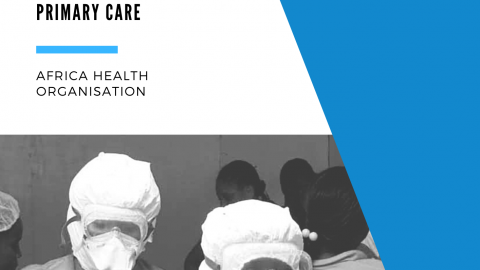COVID-19 Guidance on infection prevention and control for primary care settings in Africa
Africa Health Organisation (AHO) has produced a Guidance and Technical Report on COVID-19 infection prevention and control for primary care, including general practitioner practices, dental clinics and pharmacy settings in Africa.
This document provides guidance on infection prevention and control to healthcare providers in Africa inorder to prevent COVID-19 infection.
The target auidence are healthcare workers in general practitioner (GP) offices, primary care clinics, dental offices/clinics, and pharmacies in Africa.
Infection prevention and control (IPC) practices are of critical importance in protecting the function of healthcare services at all levels and mitigating the impact on vulnerable populations. Although the management of possible COVID-19 cases is usually guided by national policies for specific healthcare facilities, community transmission is currently widespread in most African countries, therefore primary healthcare providers in the community such as GPs, dentists and pharmacists are at risk of being exposed to COVID-19.
In most instances, coronaviruses, including SARS-CoV-2, are transmitted from person to person through large respiratory droplets produced during normal conversation or when coughing and sneezing, either by inhalation or deposition on mucosal surfaces. Other routes implicated in transmission of coronaviruses include contact with contaminated fomites (e.g. frequently touched surfaces) and inhalation of aerosols produced during aerosol-generating procedures (AGPs). Viral RNA has also been detected in blood specimens, albeit rarely, but there is no evidence of transmission through contact with blood [4]. The relative role of droplet, fomite and aerosol transmission for SARS-CoV-2, and the transmissibility of the virus at different stages of the disease remain partly unclear.


